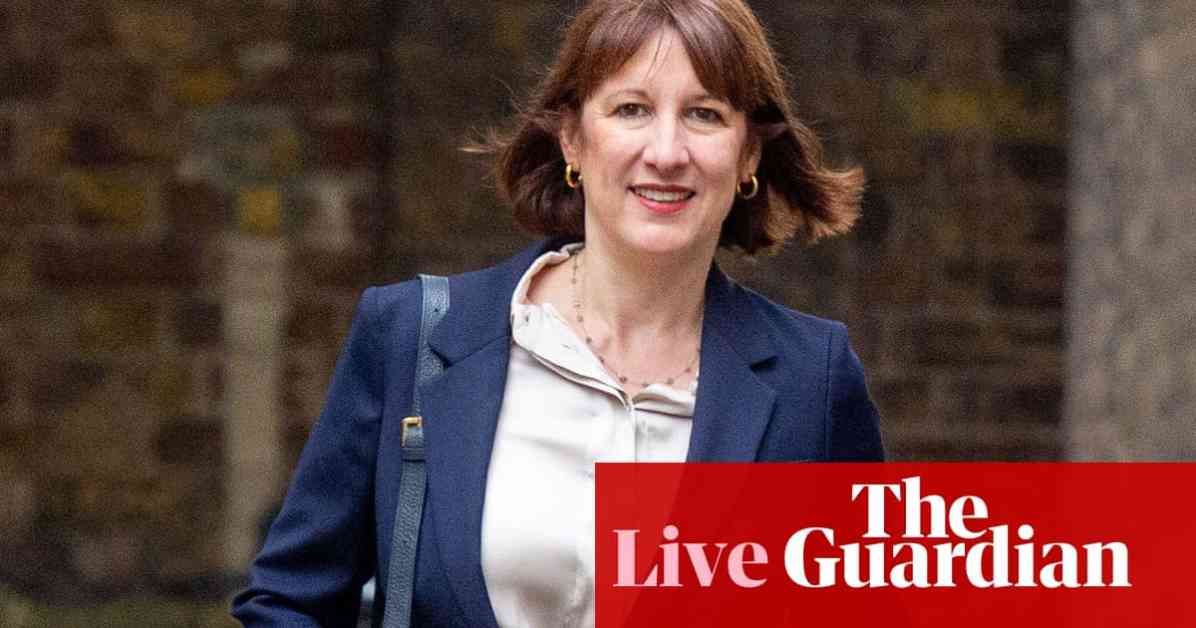Rachel Reeves, the chancellor of the Labour Party, addressed concerns over the government’s plans to scale back the winter fuel allowance during a meeting with Labour MPs. She acknowledged that the decision to reduce the allowance is difficult and expressed empathy towards the arguments raised by many in the room. Reeves emphasized the increase of £900 in the new state pension compared to a year ago and reassured that the triple lock protection will be maintained throughout the duration of the Parliament.
She also hinted at the need for more challenging decisions in the future, attributing the current financial constraints to the previous Conservative government’s reckless choices. Despite the tough choices ahead, Reeves stressed the importance of maintaining economic stability and fiscal responsibility to address the inherited financial challenges faced by the current government.
In response to concerns raised by some MPs, Reeves highlighted the need to apportion blame for the situation, emphasizing that it lies with the Conservatives and their past policy decisions. She urged members to consider the bigger picture and the long-term implications of the government’s actions in addressing the financial challenges inherited from the previous administration.
Regarding the winter fuel allowance, a thinktank warned that the government’s plan to means-test the payments could push an additional 100,000 pensioners into poverty. The Joseph Rowntree Foundation highlighted the potential impact of restricting eligibility for the allowance, noting that it could exacerbate pensioner poverty rates and increase the number of vulnerable individuals struggling to make ends meet.
In response to the concerns raised by the thinktank, the government emphasized the importance of ensuring that pensioners in need receive the support they require. Efforts to increase uptake of pension credit among eligible individuals are underway to help alleviate financial burdens for those living in poverty. However, the JRF suggested alternative approaches, such as providing winter fuel allowance to pensioners in homes with lower council tax bands, to address the broader issue of pensioner poverty more effectively.
In a separate development, the Labour Party announced plans to grant local transport authorities in England the power to run and control bus services. This initiative aims to safeguard essential bus routes and improve access to public transportation for communities across the country. The transport minister emphasized the importance of devolving decision-making powers to local authorities to enhance service delivery and meet the diverse needs of passengers.
The government’s proposal to introduce VAT on private school fees sparked debate in Parliament, with concerns raised about the potential impact on school capacity and class sizes in the state sector. Opposition MPs criticized the tax hike, warning of potential consequences for parents and students, including reduced school choices and overcrowded classrooms. Education ministers sought to allay fears by highlighting the stability of private school enrollment despite fee increases, and pledged to monitor the situation closely to address any arising challenges.
Amidst ongoing discussions on policy changes and financial decisions, former Prime Minister David Cameron weighed in on the government’s approach to winter fuel payments. He criticized the current strategy as a misguided attack on vulnerable pensioners, suggesting alternative measures to exclude higher-income individuals from receiving the allowance. Cameron’s proposal to target tax relief based on income levels received mixed reactions, with government officials emphasizing the need for a balanced and effective solution to support pensioners in need.
In response to concerns over the handling of select committee chair elections, Speaker Lindsay Hoyle announced the uncontested appointments of several committee chairs in the House of Commons. The list of elected chairs included representatives from various political parties overseeing key parliamentary committees responsible for scrutinizing government policies and decisions. The upcoming ballot for other posts was scheduled to take place to ensure a fair and transparent selection process.
As discussions on critical issues such as pensioner welfare, education funding, and public transport continue to unfold in Parliament, the government faces mounting pressure to address the concerns raised by MPs, stakeholders, and the public. The need for thoughtful decision-making, effective policy implementation, and transparent communication remains paramount to ensure the well-being and prosperity of all citizens. Amidst the challenges and complexities of governance, the commitment to upholding democratic values, social justice, and economic stability must guide the government’s actions and priorities in shaping a better future for the country.


